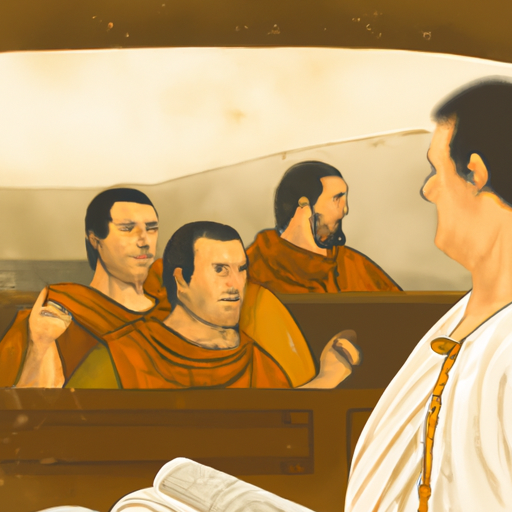The History of China’s Son of Heaven: An Exploration of Imperial Authority
Unearth the mysterious past of China’s majestic ruler, and delve into the heritage of a formidable dynasty! Uncover secrets that have been hidden away for centuries and discover the grandeur of a bygone era. Delve deep into the depths of history to uncover the story of an influential leader and their long-lasting legacy!

For centuries, the mystique of an individual who held absolute power over many has captivated minds and hearts alike. From the ancient dynasties to the modern day, this figure has left a mark on history that continues to be felt throughout much of Asia.
The Tang Dynasty saw a period of great prosperity and technological advances, while Confucianism was embraced as a guiding principle during the Ming Dynasty. During this time, literature and art flourished under its patronage.
The legacy of this ruler is still evident today in grand monuments, intricate works of art, and other reminders that speak to their influence in shaping Chinese culture for generations.
Uncover secrets that have been hidden away for centuries or explore the grandeur of a bygone era – all through the story of China’s majestic ruler! Learn about their lasting impact on our world today and discover what made them so influential in forming Chinese culture.
.
Introduction

The title of Son of Heaven, a designation of the Chinese emperor, has been in use since the Shang Dynasty (c. 1700–1046 BC). This illustrious title carried with it immense power and authority over all aspects of society, from politics to economics to military and social matters. The emperor was thought to be a divine mediator between heaven and earth, mandated to ensure that people followed the laws of nature. Throughout China’s illustrious history, emperors have been seen as having a special bond with the heavens, charged with governing according to heavenly principles.
– Historical Context of the Son of Heaven in Ancient China
A complex and convoluted tale, the Son of Heaven has been a fixture in Chinese culture since the Zhou Dynasty (1046-256 BCE). At this time, rulers were believed to be chosen by Heaven, granting them absolute power over their people. This notion was carried on through the Han (206 BCE-220 CE), Sui (581-618 CE), Tang (618-907 CE), and Ming (1368-1644 CE) dynasties, with Emperors still seen as having a special connection to Heaven. However, during the Qing Dynasty (1644-1912 CE), this concept began to decline in popularity as more bureaucratic systems were put in place.
Despite its evolution over time, the role of the Son of Heaven still remains an important part of Chinese culture and society today. It is a symbol of political authority and divine right that has provided legitimacy for rulers throughout Chinese history.
– The Roles and Responsibilities of the Son of Heaven in Chinese History
In ages past, a figurehead of absolute power reigned over the Chinese people. This title was adopted by various dynasties throughout time and was part of an ancient governmental system that spanned millennia. It was believed that this ruler, the Son of Heaven, had been appointed by the heavens to maintain harmony between earth and sky, as well as between man and nature.
The Son of Heaven’s primary role was to protect his subjects from natural disasters such as floods or droughts while also keeping peace among them. He also had a religious purpose, performing rituals in order to receive blessings from the heavens. Politically, he was seen as a symbol of authority and justice who could appoint officials to carry out his orders, settle disputes between citizens, lead ceremonies honoring ancestors or gods, and declare war if necessary. In addition, he held economic control over his domain; setting taxes or tariffs on goods entering or leaving his kingdom, controlling prices for certain commodities like grain or silk, creating monopolies on certain industries like salt production, and distributing land among his subjects according to their social rank.
For centuries upon centuries the Son of Heaven has been essential in maintaining order within Chinese society. His many responsibilities have enabled him to keep stability among China’s many different regions and cultures through the ages.
– The Evolution of the Son of Heaven Title Through Dynasties
Throughout the ages, the title of ‘Son of Heaven’ has been subject to a great deal of transformation. Initially used during the Zhou dynasty (1046–256 BCE), it was used to describe the ruler as a being with a mandate from heaven, an idea echoed by other ancient civilizations such as Egypt, China, and India. During the Qin dynasty (221–206 BCE), this concept had developed further and was now more closely associated with absolute power, where rule was seen as ordained from above. This ideology persisted into the Han dynasty (202 BCE – 220 CE), but with a slight twist; instead of being an intermediary between heaven and earth, the emperor was now viewed as setting an example for people to follow on earth.
The Sui dynasty (581–618 CE) marked another shift in how ‘Son of Heaven’ was seen. With Confucianism becoming increasingly influential in society, filial piety and respect for authority figures became key components in understanding this title. Subsequently during both Tang (618–907 CE) and Song (960–1279 CE) dynasties, Confucianism held even greater sway over how rulers were perceived: moral virtue was now paramount if one wanted to be seen as a worthy representative of heavenly authority on earth.
This concept remained strong until 1911 when it was overthrown by modern forces; this evolution demonstrates how Chinese views on government have changed over time from an absolute monarchy to today’s more democratic system.
– Political Implications of the Son of Heaven in Chinese History
The concept of the Son of Heaven has been a pervasive presence throughout Chinese history, with its far-reaching political implications. In ancient times, it was believed that this title gave the emperor absolute power and authority to rule over his subjects without question. The Han Dynasty saw an increased emphasis on Confucianism, which taught that the emperor should act as a moral leader and set an example for his people through virtuous behavior. This idea was further developed in later dynasties such as the Qing Dynasty where Confucian values were heavily enforced in government policies and education systems.
Today, although the title is used more symbolically, it still holds great significance in Chinese culture and identity. Many Chinese people still believe that their leaders should strive to embody these traditional virtues when ruling over their subjects. As such, the concept of the Son of Heaven remains an important part of Chinese history and will continue to have a major influence on Chinese politics for years to come.
– Cultural Significance of the Son of Heaven in Chinese History
Throughout the ages, the Son of Heaven has been an integral part of Chinese culture and society. A title that translates to “Emperor,” it was believed that this figure held great power and authority over their people, chosen by Heaven to bring order and prosperity to the lands.
In Confucianism, it was thought that the Emperor had a special connection with Heaven and could act as a mediator between gods and humans. This gave rise to a system where the Son of Heaven could pass laws, make decisions, and even declare war on behalf of his people.
The position of Emperor was seen as unifying force for all Chinese people regardless of social or economic standing; providing stability in times when different regions were vying for independence. Additionally, they were viewed as a father-like figure who could protect their people from external threats. This reverence can still be seen today in traditional ceremonies such as ancestor worship where deceased Emperors are honored for their service throughout history.
The Son of Heaven has played an important role in Chinese history due to its political and cultural significance within society. Its symbolic representation as a divine leader has helped shape many aspects of Chinese culture including Confucianism, ancestor worship rituals, and dynastic rule throughout history.
conclusion

An enigmatic title of grandeur, one that has been bestowed upon many a sovereign throughout the annals of Chinese history. From the Zhou dynasty onwards, it has been used to refer to the emperor of China, who was seen as a divine being with power derived from Heaven. It was not just limited to the Zhou but also extended to other dynasties such as Qin, Han, Tang and Ming.
.
Some questions with answers
Q1: Who is China’s Son of Heaven?
A1: The Son of Heaven is a title used by the Emperor of China, who is seen as a divine ruler and the head of state in Chinese history.
Q2: When did the concept of ‘Son of Heaven’ originate?
A2: The concept of ‘Son of Heaven’ originated during the Zhou Dynasty (1046-256 BC).
Q3: What does being a ‘Son of Heaven’ mean?
A3: Being a ‘Son of Heaven’ means that the Emperor was seen as a divine ruler and had ultimate authority over all matters within his realm.
Q4: How did this title change over time?
A4: Over time, the title became more symbolic and was used to denote legitimacy and authority among rulers.
Q5: What is the significance of this title in Chinese history?
A5: The title has been significant in Chinese history as it has served to legitimize various dynasties throughout Chinese rule. It has also been used to signify unity between different rulers, cultures, and regions.




